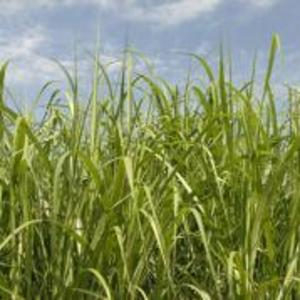Illinois researchers receive $1 million to study bioenergy crops




University of Illinois
April 5, 2018
BY University of Illinois
The USDA National Institute of Food and Agriculture has announced a grant for $1 million to support research led by a University of Illinois scientist. The research will address the need for better-adapted and higher-yielding biomass cultivars ready to plug into the biofuel supply chain in the United States.
“Currently, there is only one genotype of Miscanthus x giganteus (‘Illinois’) available in the U.S. for farmers to grow as a biomass crop,” says Erik Sacks, plant geneticist in the Department of Crop Sciences at U of I and principal investigator on the grant. “This cultivar is insufficiently winter-hardy in the northern Midwest, and flowers too early in the southern U.S. to achieve high yields.
“If we don’t have the right varieties, that’s going to be a really limiting factor in our ability to produce the biomass feedstocks needed for conversion to bioenergy or other bioproducts. The varieties have to be regionally adapted,” he adds.
Sacks and collaborators at U of I, Alabama A&M University, and HudsonAlpha Institute for Biotechnology will breed new miscanthus cultivars from an extensive repository of plant materials collected around the world. They will also field test already developed hybrids that show promise for both cold tolerance and high yields.
Advertisement
Advertisement
An important aspect of the work is the use of genomic selection tools, which will allow the team to make decisions about desired traits without having to grow plants to maturity. That process, on which traditional plant breeding is based, is extremely time-consuming and requires a lot of trial-and-error.
“We will use a statistical model that incorporates information from the miscanthus genome to predict phenotypic values, such as winter hardiness, flowering time, and biomass,” says Alex Lipka, assistant professor of biometry in the Department of Crop Sciences at U of I and co-investigator on the grant.
“The cool thing is that if we develop a really good statistical model, breeders will be able to make selections based on predicted phenotypic values before plants are even planted. It could substantially speed up the breeding cycle.”
Advertisement
Advertisement
The grant also includes an educational component for high school, undergraduate, and graduate students. Investigators at Alabama A&M and HudsonAlpha will administer a short course on genomics, and graduate students will be funded on the project.
“We will educate and inspire the next generation of plant genomicists, with a focus on underrepresented minority groups and women,” Sacks says. “We hope to get the next generation on a path to help feed, clothe, and power the world sustainably.”
Ultimately, the team believes the combination of faster breeding cycles, better-adapted cultivars, and training opportunities will overcome the hurdles the biomass industry faces today, resulting in a stronger bioeconomy in America.
Additional co-investigators include Kankshita Swaminathan and Sara Cooper of HudsonAlpha, and Ernst Cebert and Venkateswara Sripathi in the Department of Biological and Environmental Sciences at Alabama A&M University.
Related Stories
The U.S. Department of Energy Bioenergy Technologies Office (BETO) announced up to $23 million in funding to support research and development (R&D) of domestic chemicals and fuels from biomass and waste resources.
The U.S. DOE has announced its intent to issue funding to support high-impact research and development (R&D) projects in two priority areas: sustainable propane and renewable chemicals and algal system cultivation and preprocessing.
Sens. Sherrod Brown, D-Ohio, and Pete Ricketts, R-Neb., in August introduced the Renewable Chemicals Act, a bill that aims to create a tax credit to support the production of biobased chemicals.
The Chemical Catalysis for Bioenergy Consortium, a consortium of the U.S. DOE’s Bioenergy Technologies Office, has launched an effort that aims to gather community input on the development of new biomass processing facilities.
USDA on March 8 celebrated the second annual National Biobased Products Day, a celebration to raise public awareness of biobased products, their benefits and their contributions to the U.S. economy and rural communities.
Upcoming Events










